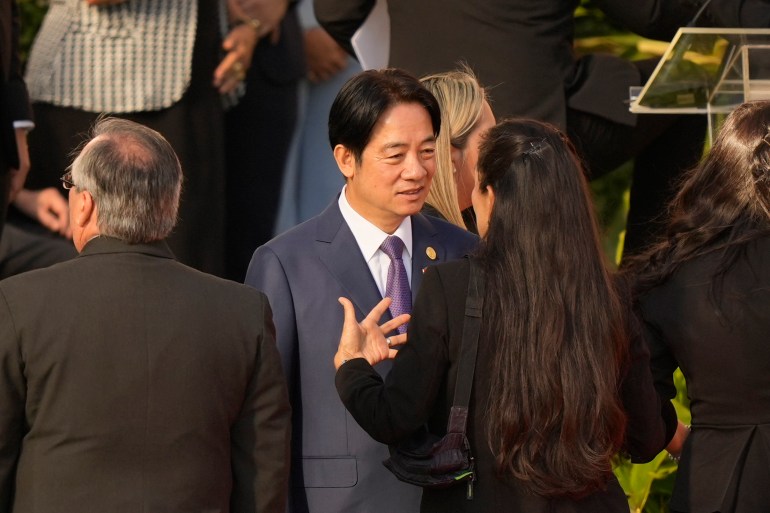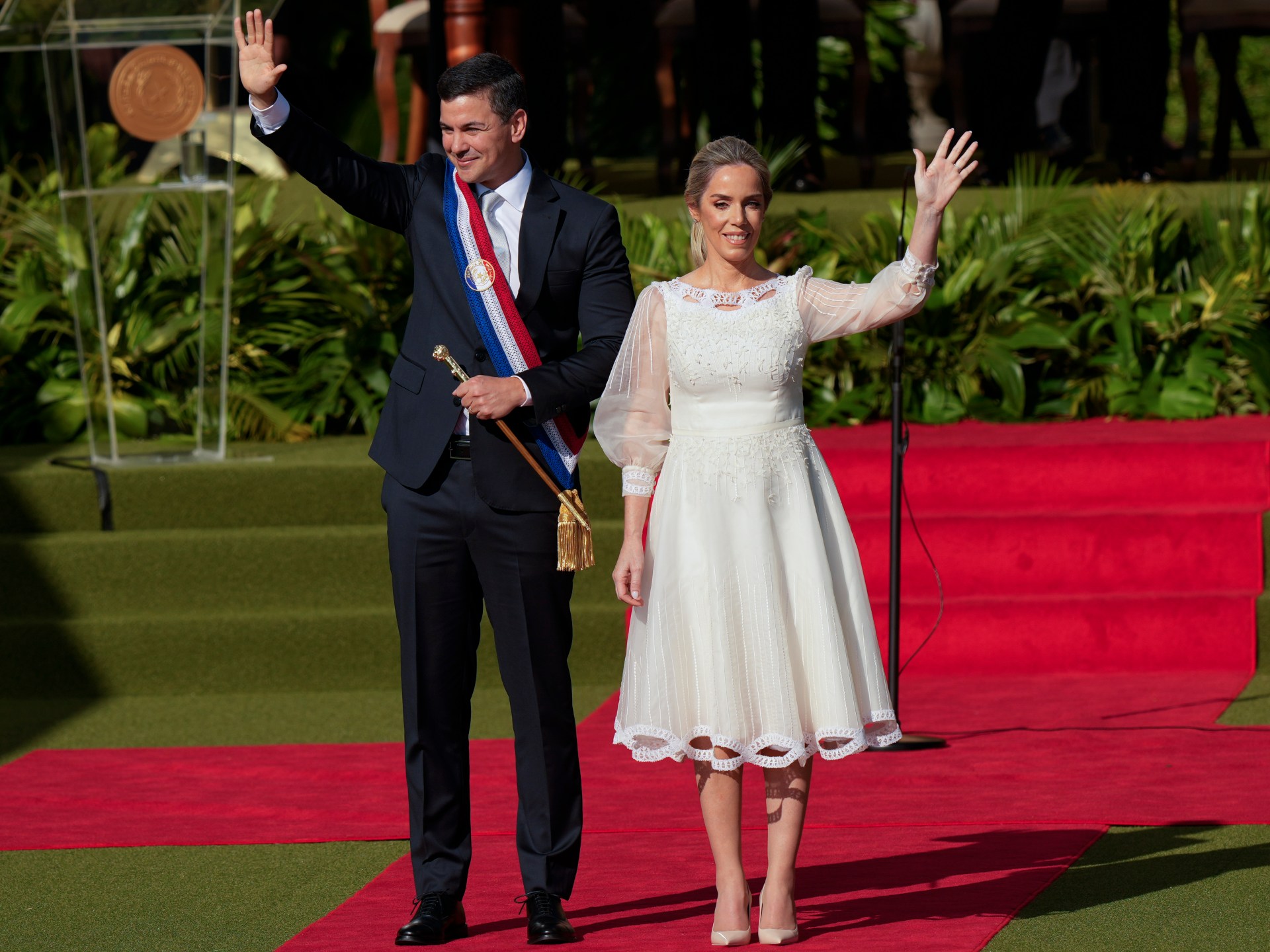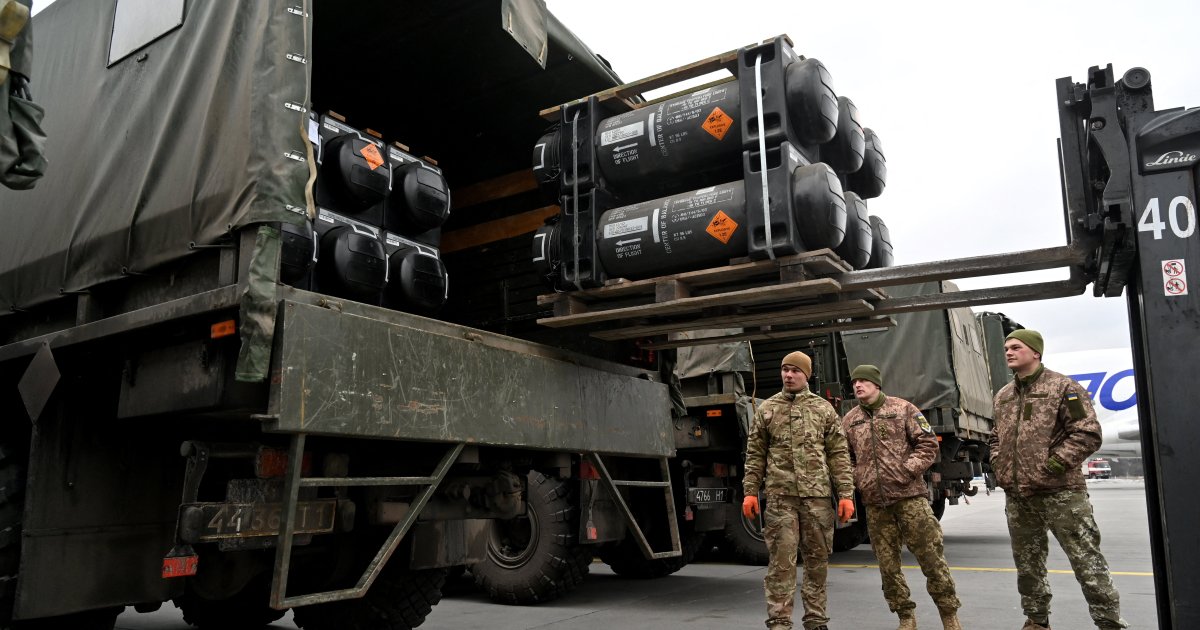Santiago Peña takes office as Paraguay’s president with pro-Taiwan message
Santiago Peña has been inaugurated as Paraguay’s newest president, continuing a nearly unbroken streak of power for the conservative Colorado Party.
Peña, a 44-year-old economist and former finance minister, took his oath of office on Tuesday with a speech that paid tribute to his embattled party leader Horacio Cartes.
“Thank you for persevering, without faltering, in building consensus and searching for agreement despite differences,” Peña told Cartes in the opening moments of his speech.
“Today, we bring that political calling to the service of all Paraguayans. We aim to be a party at the service of the nation.”
The swearing-in ceremony, held at the presidential palace in the capital of Asunción, brought together dignitaries from around the globe, including the King of Spain Felipe VI and William Lai, the vice president of Taiwan.
In his remarks, Peña vowed to oversee a renewal of Paraguay — “the resurgence of a giant” — through reforms to the healthcare system, job creation and more law enforcement on the country’s streets.

A victory for the status quo
Peña sailed to victory in April with 43 percent of the vote, far ahead of his closest rival Efraín Alegre, who only garnered 28-percent support.
It was a resounding victory for the status quo in Paraguay, a landlocked country that has been dominated for the last 76 years by the Colorado Party.
Only once, between 2008 and 2013, has that ruling streak been broken. But the Colorado Party has long faced accusations of corruption.
Outgoing President Mario Abdo Benítez, for example, faced a crisis in his administration when his vice president, Hugo Velázquez Moreno, considered resignation after allegations emerged that he was involved in a bribery scandal.
And party leader Cartes — a businessman and former president himself — has faced sanctions in the United States for “significant corruption” and “involvement with foreign terrorist organizations”.
Peña has long defended Cartes, dismissing the allegations as absurd. He has close ties to Cartes: As president, Cartes appointed Peña to serve as finance minister in 2015, though he stepped down two years later to make an unsuccessful bid for the presidency.
Nevertheless, during his inauguration, Peña addressed the need to combat corruption, calling for “firm and ethical leadership” built on transparency.
“I am convinced that corruption problems are resolved with an independent, impartial and rapid justice,” he said in his speech.
“We are going to work hard so that politics stops being a temptation for organised crime.”

A key ally for Taiwan
Peña’s ascent to the presidency also marked continuity for Paraguay’s foreign policy. The landlocked country is the only South American nation to maintain formal diplomatic relations with Taiwan, despite pressure from China.
Some of Peña’s rivals on the campaign trial, including Alegre, had promised to break ties with Taiwan if elected, touting the economic advantages of allying with China instead.
But Peña leaned into his pro-Taiwan platform, promising to strengthen existing relations.
The presence of Taiwan’s Vice President Lai in the inauguration audience signalled Paraguay’s continued commitment to the island.
Though Taiwan is self-governing, China has never recognised its sovereignty and instead considers the island its territory.
Denying this “one China” principle can come at a cost. Beijing represents one of the world’s largest economies and largely refuses to do business with any country that recognises Taiwan’s government.
As a result, Taiwan has only 13 remaining diplomatic allies, largely small countries in Central America, the Caribbean and the Pacific region.
In Tuesday’s speech, Peña called for Paraguay to build alliances based on “geo-strategic vision”.
“Our relationship with the Republic of China, Taiwan, is an example of that and of Paraguay’s friendly and cooperative spirit with nations for which we have great affection and with whom we are not only allies but brothers,” he said.




